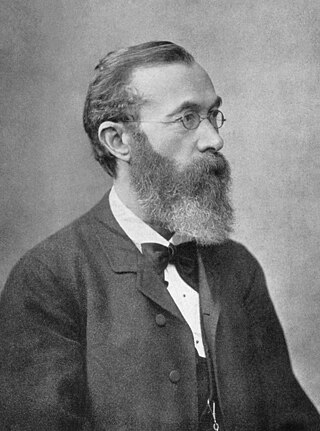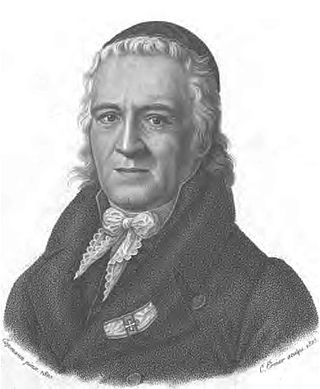Anastasius Nordenholz (1862 - 1953) is the author of Scientologie, Wissenschaft von der Beschaffenheit und der Tauglichkeit des Wissens (Scientology, Science of the Constitution and Usefulness of Knowledge) written in 1933.
Anastasius Nordenholz (1862 - 1953) is the author of Scientologie, Wissenschaft von der Beschaffenheit und der Tauglichkeit des Wissens (Scientology, Science of the Constitution and Usefulness of Knowledge) written in 1933.
Anastasius Nordenholz was born on February 1, 1862, in Buenos Aires, Argentina. At the age of 16 he came to Germany and studied law, political economics and philosophy successively in Berlin, Zurich and Jena. He then went to Munich, studying there as a private scholar until around 1905. [1]
In 1904, he published a study titled Allgemeine Theorie der gesellschaftlichen Produktion (General Theory of the Production in Society), which was linked with Schopenhauer and in which he examined Kant's criticism. This concerned political economics, with a focus on the science of human thinking and knowledge. This book was followed in 1927 with Welt als Individuation - Entwurf eines Individuationismus (World as Individuation - Concept of an Individuationism ). A supplement of the Publishing House Felix Meiner in Leipzig said:
His work Scientologie, Wissenschaft von der Beschaffenheit und der Tauglichkeit des Wissens ("Scientology Science of the Constitution and Usefulness of Knowledge") was published in 1934. The Church of Scientology has actively but in vain tried to suppress the book, as well as the domain name “scientologie”. [1]
He spent the remainder of his life in Las Rosas, in the southwest of the province of Santa Fe, Argentina, to which he came back to after World War I. He subsequently returned to Germany only as visitor. Nordenholz died at the age of 91 on September 21, 1953, in Santa Fe, Argentina. [1]

Wilhelm Maximilian Wundt was a German physiologist, philosopher, and professor, one of the fathers of modern psychology. Wundt, who distinguished psychology as a science from philosophy and biology, was the first person ever to call himself a psychologist.
Christoph Gottfried Bardili was a German philosopher and cousin of Friedrich Wilhelm Joseph Schelling. He was critical of Kantian idealism and proposed his own system of philosophy known as rational realism, a view based purely upon "thinking as thinking".

Free Zone, Freezone, and Independent Scientology are umbrella terms for the groups, organizations, and individuals who practice Scientology beliefs and practices independently of the Church of Scientology (COS). Such practitioners range from those who closely adhere to the original teachings of Scientology's founder L. Ron Hubbard, to those who have adapted practices far from COS beliefs and practices.

Friedrich Wilhelm Joseph Schelling, later von Schelling, was a German philosopher. Standard histories of philosophy make him the midpoint in the development of German idealism, situating him between Johann Gottlieb Fichte, his mentor in his early years, and Georg Wilhelm Friedrich Hegel, his one-time university roommate, early friend, and later rival. Interpreting Schelling's philosophy is regarded as difficult because of its evolving nature.

Jakob Friedrich Fries was a German post-Kantian philosopher and mathematician.

Karl Robert Eduard von Hartmann was a German philosopher, independent scholar and author of Philosophy of the Unconscious (1869). His notable ideas include the theory of the Unconscious and a pessimistic interpretation of the "best of all possible worlds" concept in metaphysics.

Karl Leonhard Reinhold was an Austrian philosopher who helped to popularise the work of Immanuel Kant in the late 18th century. His "elementary philosophy" (Elementarphilosophie) also influenced German idealism, notably Johann Gottlieb Fichte, as a critical system grounded in a fundamental first principle.

Robert von Mohl was a German jurist. Father of diplomat Ottmar von Mohl and salonnière Anna von Helmholtz. Brother of Hugo von Mohl, Moritz Mohl and Julius von Mohl.

Ernst Laas was a gymnasium teacher, philosopher of positivism and education, and chair of philosophy and pedagogy at the University of Strasbourg. The insights he found in the history of philosophy and philosophies based on sensualism are key aspects of his scholarly work.

Jakob Frohschammer was a German theologian and philosopher.

Alfred Baeumler, was an Austrian-born German philosopher, pedagogue and prominent Nazi ideologue. From 1924 he taught at the Technische Universität Dresden, at first as an unsalaried lecturer Privatdozent. Bäumler was made associate professor (Extraordinarius) in 1928 and full professor (Ordinarius) a year later. From 1933 he taught philosophy and political education in Berlin as the director of the Institute for Political Pedagogy.
Scientologie, Wissenschaft von der Beschaffenheit und der Tauglichkeit des Wissens is a 1934 book published by Anastasius Nordenholz, in which he defines the term "Scientologie" or "Eidologie" as a science of knowing or knowledge and discusses the philosophical implications of the concept.
Nico Stehr was "Karl Mannheim Professor for Cultural Studies" at the Zeppelin University in Friedrichshafen / Germany and Founding Director of the European Center for Sustainability Research.
Lutz Wingert is a German philosopher who is sometimes identified as one of the "Third Generation" of the Frankfurt School of philosophy. He is a professor of philosophy focusing on practical philosophy at the Swiss Federal Institute of Technology Zurich and a member of the Zentrum Geschichte des Wissens. He is a former student of, and a co-author with, Jürgen Habermas, a founding member of the Frankfurt School. Wingert is a former chair of practical philosophy at the University of Dortmund. Along with Wilfried Hinsch, he edits the Ideen & Argumente series.

Friedrich Kambartel, was a German philosopher.

Ernst Peter Fischer is a German Historian of Science and Publicist.

Stefan Weber is an Austrian media researcher and writer. The mass media often call him "plagiarism hunter".

Peter Weingart is a German professor emeritus in sociology and former director of the Center for Interdisciplinary Research, Bielefeld.
Guido Sandberger was a German paleontologist and geologist. He was the brother of paleontologist Fridolin von Sandberger.
Theodor Litt was a German culture and social philosopher as well as a pedagogue.